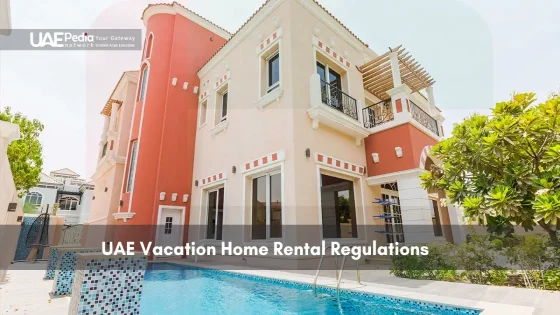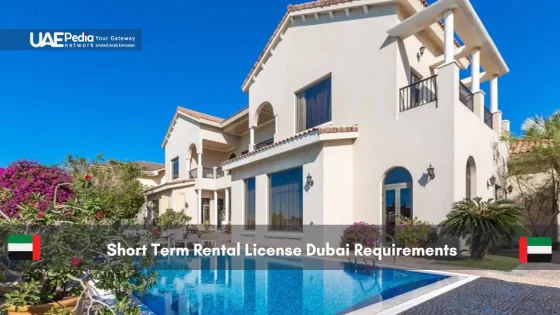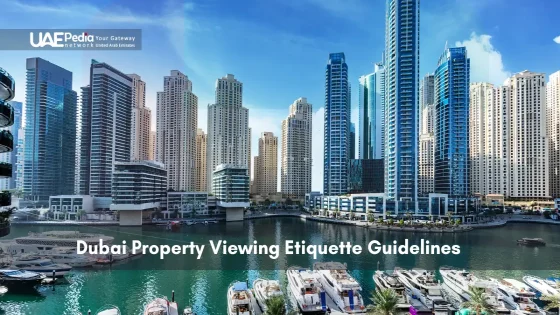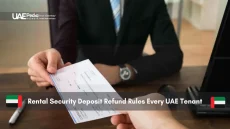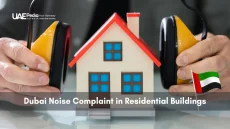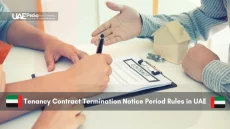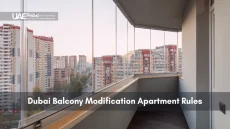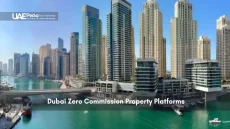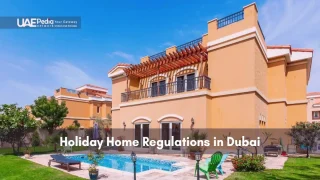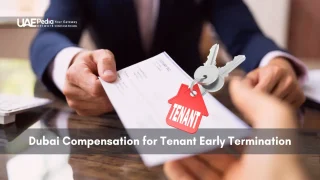What if navigating short-term rental rules could feel less like deciphering a maze and more like following a well-marked trail? Over 35% of Dubai’s property listings now cater to travelers—a number growing faster than camel races at Al Marmoom. This surge reflects shifting traveler preferences and evolving local frameworks shaping how hosts operate.
Whether you’re listing a sunlit Dubai high-rise or a cozy Abu Dhabi villa, understanding the playbook matters. We’ve crafted this guide to simplify compliance while highlighting opportunities in this dynamic market. You’ll discover how smart frameworks protect your investment and create better guest experiences.
Inside, you’ll find:
- Licensing shortcuts that save time (and dirhams)
- Inspection checklists tailored for Emirati properties
- Real-world examples from current hosts in major cities
- Cultural considerations—like designing welcoming majlis spaces
Let’s turn regulatory navigation into your competitive edge.
Understanding the UAE Vacation Home Rental Regulations Landscape
Think of Emirati property rules as a mosaic—local and federal pieces fit together to create clarity. While federal guidelines set baseline standards, cities like Dubai and Abu Dhabi add their own flair. It’s like following a recipe where regional spices enhance a national dish.
Local Rules vs. National Vision
Municipalities handle permits and inspections, while federal agencies focus on broader economic goals. For example, Dubai’s DTCM ensures properties meet tourism-ready benchmarks, but federal laws protect consumer rights nationwide. This dual system balances community needs with big-picture growth.
Tourism Guardians at Work
Authorities like Abu Dhabi’s DCT act as quality watchdogs. They conduct surprise checks, verify safety certifications, and even train hosts on cultural hospitality. One Dubai host shared: “They’re not just enforcers—they’re partners in creating memorable stays.”
Staying compliant means keeping paperwork sharp. Lease agreements, ID copies, and safety reports should live in one digital folder. Pro tip: Use checklists from this Dubai licensing guide to avoid last-minute scrambles.
The Licensing Process Explained
Unlocking your property’s earning potential starts with mastering three key steps—like learning the secret handshake to an exclusive club. Let’s break down what it takes to get your space guest-ready and legally compliant.
Registering Your Property
First, submit your application through the DCT’s online portal. You’ll need:
| Step | Requirements | Timeline |
|---|---|---|
| 1. Initial Submission | Ownership proof, floor plan | 3-5 business days |
| 2. Fee Payment | Credit card or bank transfer | Instant processing |
| 3. Approval Notice | Email confirmation | Up to 10 days |
Meeting Quality and Safety Standards
Inspectors check for fire extinguishers, emergency exits, and Wi-Fi speed. One host in Yas Island shared: “The inspection felt like a safety masterclass—they even suggested better smoke detector placements.”
License Renewal and Fee Management
| License Type | Annual Fee | Renewal Deadline |
|---|---|---|
| Standard | AED 1,500 | 30 days before expiry |
| Premium | AED 2,800 | 45 days before expiry |
Set calendar reminders two months early. Pro tip: Use digital wallets for fee payments—they often process faster than bank transfers.
Essential Documents for Compliance
Imagine your paperwork as a passport—it stamps your entry into the rental market. Getting this right isn’t just red tape; it’s your golden ticket to hosting without hiccups. Let’s unpack what you’ll need to cross the finish line.
Proof of Ownership and Identification
Start with the basics: title deeds and passport copies. Abu Dhabi requires notarized Arabic translations for foreign-owned properties—a detail many first-timers miss. One host in Ras Al Khaimah shared: “The approval process sped up once I color-coded my ownership docs and Emirates ID.”
Property Layout, Photos, and Safety Certifications
Your floor plan needs more clarity than a desert horizon. Tourism boards want scaled drawings showing exits, smoke detectors, and all amenities. High-res photos should highlight safety features—think fire extinguishers mounted near kitchens, not tucked behind curtains.
Keep these three folders updated digitally:
- Annual electrical inspection reports (dated within 6 months)
- Plumbing certifications with water pressure test results
- Proof of insurance coverage matching your listing’s capacity
A Dubai host’s pro tip? “Snap time-stamped photos during inspections—they’ve saved me during two license renewals.” Stay sharp, and your holiday home stays open for business.
Managing Ongoing Regulatory Responsibilities
Staying compliant isn’t a one-time checkbox—it’s like tending a desert garden. Regular care keeps your oasis thriving while avoiding costly surprises. Let’s explore how savvy hosts turn routine tasks into streamlined habits.
Monthly Reporting and Revenue Tracking
Think of occupancy reports as your financial compass. Abu Dhabi requires monthly submissions detailing guest stays and fees—a process simpler with apps like HostTools or Airtable. One host shared: “Automating these reports freed up 10 hours a month for guest interactions.” Track these three metrics:
- Occupancy rates compared to local averages
- Cleaning fee compliance with municipal caps
- Tourism tax calculations (usually 5-10% per booking)
Insurance Coverage and Routine Inspections
Your policy needs more layers than a Bedouin’s tent. Annual inspections check fire systems, electrical wiring, and structural integrity. Pro tip: Schedule inspections during low season, and always keep:
- Updated liability coverage (AED 2M minimum in Dubai)
- Proof of emergency contact accessibility
- Recent pest control certificates
Set quarterly reminders to review obligations. Digital checklists shared with co-hosts or property managers prevent oversights. When you treat compliance as part of your hospitality DNA, guests notice—and so do review algorithms.
Insights from Abu Dhabi and Dubai
Imagine standing where desert dunes meet urban skylines—that’s the contrast between Abu Dhabi and Dubai’s rental landscapes. Both cities sparkle with potential but play by different rules. Let’s unpack how savvy hosts navigate these distinct environments.
Capital Calm vs. Metro Momentum
Abu Dhabi’s approach feels like a leisurely dhow cruise. Registration fees start 40% lower than Dubai’s, and approval timelines often run smoother. One host near Corniche Beach shared: “They helped me adjust my listing instead of handing out fines—it’s collaborative here.” This flexibility makes the city ideal for testing new concepts in the short-term rental business.
Dubai’s Blueprint for Success
Dubai operates like a high-speed metro—precise and predictable. Mandatory safety certifications and strict occupancy caps create trust with travelers. Platforms like Airbnb thrive here despite tighter rules, with 78% of listings maintaining 4.8+ ratings. Pro tip: Use Dubai’s detailed guidelines as your business playbook—they’re surprisingly helpful for standing out in a competitive market.
| Factor | Abu Dhabi | Dubai |
|---|---|---|
| Registration Fee | AED 1,100 | AED 2,800 |
| Approval Time | 7-10 days | 14-21 days |
| Unique Edge | Cultural immersion stays | Luxury tech-enabled units |
Choose your city like picking a holiday destination—match your hosting style to local rhythms. Prefer creative freedom? Abu Dhabi’s market offers breathing room. Love structure? Dubai’s framework helps scale efficiently. Both paths lead to success when you align with the city’s heartbeat.
Understanding Short-Term Rental Dynamics in the UAE
Picture the rental market as shifting desert sands—constantly reshaping under traveler footprints and policy winds. Recent data shows bookings surged 42% year-over-year, with coastal properties and urban lofts leading the charge. But thriving here means reading the dunes: balancing guest desires with evolving frameworks.
Market Trends and Guest Demand
Travelers now crave hybrid stays—tech-ready spaces with local flavor. A Sharjah host noted: “Guests want fast Wi-Fi and handwritten guides to spice souks.” Peak seasons stretch beyond winter, with summer bookings up 19% thanks to staycation deals.
| City | Avg. Occupancy | Top Amenity Demand |
|---|---|---|
| Dubai | 78% | Smart home tech |
| Abu Dhabi | 65% | Cultural experience kits |
| Ras Al Khaimah | 82% | Private pools |
Impact of Regulations on Profitability
While permit fees and safety checks add costs, they also build traveler trust. Strict occupancy caps (like Dubai’s 6-guest max) push hosts to optimize pricing. One host reported: “Compliance boosted our repeat bookings by 33%—guests feel safer.”
| Factor | Cost Increase | Revenue Boost |
|---|---|---|
| Licensing | 12-18% | 27% avg. rate premium |
| Safety Upgrades | 8-10% | 15% longer stays |
Smart hosts offset expenses through dynamic pricing tools and partnerships with tour operators. The secret? Treat rules as guardrails, not barriers—they separate fly-by-night listings from sustainable businesses.
Step-by-Step Guide to Getting Licensed
Picture your license approval journey as a treasure map—each step reveals clearer paths to hosting success. Let’s chart the course from digital forms to final stamps, ensuring you reach the “X” without detours.
Digital Doorways: Navigating Portals
Start by creating an account on official platforms like RAK’s Tourism Gateway or Abu Dhabi’s DCT portal. You’ll upload:
- Scanned title deeds (with Arabic translations if needed)
- Valid Emirates ID or passport copies
- Floor plans showing exits and safety equipment locations
One host in Al Ain shared: “Saving drafts as PDF checklists helped me spot missing pages before hitting submit.” Expect 3-7 business days for initial review.
| Stage | Key Action | Common Hurdles |
|---|---|---|
| 1. Account Setup | Verify email & mobile | Older browsers crash forms |
| 2. Document Upload | Label files clearly | Low-res scans get rejected |
| 3. Fee Payment | Save transaction ID | Bank delays for international cards |
Inspection Day Prep: Be Guest-Ready
Inspectors assess three main areas—safety, amenities, and accurate classification. Luxury units require premium finishes like smart toilets or private pools. Standard homes need basics:
- Fire extinguishers within 5 meters of kitchens
- First-aid kits visible in common areas
- Wi-Fi speed tests showing 25+ Mbps
Pro tip: Stage your space as if guests arrive tomorrow. One inspector noted: “Neatly folded towels and labeled circuit breakers signal professionalism.”
Optimizing Your Airbnb Listing Under UAE Guidelines
Think of your listing as a stage—every detail needs to shine under digital spotlights while staying within guardrails. Over 60% of travelers filter searches by amenities first, making smart presentation non-negotiable. Let’s explore how to spotlight your space’s best features without stepping offside.
Compliant Listing Practices
Start with clear disclaimers. Platforms like Airbnb require visible notes about permitted guest counts and noise rules. One host in Jumeirah shared: “Adding ‘DTCM-licensed’ in our title boosted bookings by 22%—travelers love verified stays.” Keep these three elements upfront:
- License number in the description footer
- Accurate room classifications (no “flexible” bedroom counts)
- Check-in/out times matching your permit
| Platform | Required Fields | Best Practice |
|---|---|---|
| Airbnb | License ID, max guests | Pin location within 10m accuracy |
| Booking.com | Safety certifications | Upload fire drill schedules |
| Vrbo | Tax registration | Link to tourism board guidelines |
Highlighting Key Amenities for Guests
Travelers crave photo evidence of what matters. Showcase smart locks, high-speed routers, and kitchenettes with wide shots. A Sharjah host revealed: “Our ‘cultural corner’ with Arabic coffee sets gets mentioned in 89% of reviews.” Prioritize amenities that solve problems:
| Guest Priority | Must-Have | Nice-to-Have |
|---|---|---|
| Convenience | Washer/dryer | Smart mirrors |
| Safety | First-aid kits | 24/7 concierge |
| Local Flavor | Guidebooks | Cooking class kits |
Partner with property managers to audit your listing quarterly. They’ll spot outdated tags or missing compliance badges. Remember: dazzling photos mean nothing if checkout instructions confuse guests at 2 AM. Clarity builds trust—and five-star ratings.
uae vacation home rental regulations: Key Guidelines to Follow
Imagine rental rules as traffic signals—they keep everyone moving smoothly when respected. Ignoring them? That’s like racing through red lights. One Abu Dhabi host learned this hard way: “A missing fire extinguisher led to a AED 20,000 fine—enough to fund three months of bookings.” Let’s explore how to avoid costly missteps while leveraging neighborhood trends.
Understanding Non-Compliance Penalties
Authorities don’t just issue warnings. Repeat offenders face:
- Immediate listing suspensions (avg. 45 days)
- Fees up to AED 50,000 for unlicensed operations
- Permanent bans for safety violations
Dubai’s tourism department recently shut down 12 properties for exceeding guest limits. As one inspector noted: “We prioritize guest safety over host convenience.”
Utilizing Local Market Insights
Smart hosts treat neighborhood data like a treasure map. Track these metrics weekly:
| Metric | Tool | Action |
|---|---|---|
| Price Trends | AirDNA | Adjust rates +5% during events |
| Occupancy Rates | Mashvisor | Offer last-minute discounts |
| Regulation Updates | Local Tourism Apps | Revise house rules |
A Sharjah host boosted revenue 18% by aligning checkout times with new parking rules. Pro tip: Use Google Trends to spot seasonal demand spikes before competitors do.
Stay ahead by joining host forums and attending municipal workshops. When you blend compliance with market savvy, your short-term rental business becomes both profitable and sustainable.
Navigating Municipal and Local Compliance Requirements
Picture local zoning rules as a community cookbook—each neighborhood adds its own flavor to the mix. In Dubai Marina, high-rise units might face stricter noise limits, while Ras Al Khaimah’s coastal villas prioritize parking space allocations. These guidelines shape everything from guest capacity to balcony usage, turning legal jargon into actionable blueprints.
Decoding the Neighborhood Playbook
Property managers often act as translators between rulebooks and reality. One Dubai-based team shared: “We once converted a client’s underused storage room into a compliant luggage area—satisfying inspectors and impressing guests.” They help navigate quirks like:
- Permit renewals tied to annual community feedback
- Landscaping rules affecting outdoor seating areas
- Waste management schedules impacting turnover days
Updated documents prove compliance when neighbors raise concerns. Keep digital copies of:
| Document | Use Case | Validity Period |
|---|---|---|
| Community Approval Letters | Addressing noise complaints | 2 years |
| Parking Layout Maps | Preventing overcrowding fines | Indefinite |
When objections arise, proactive hosts mediate through welcome gifts or adjusted check-in times. A Ras Al Khaimah host noted: “Sharing our safety inspection results with adjacent units turned skeptics into referral sources.” Collaboration beats confrontation—schedule coffee meetings with building managers before peak seasons to align expectations.
Best Practices for Property Managers and Rental Hosts
Think of your rental operations as a well-oiled machine—every gear meshes smoothly when maintained with care. Leading companies like Houst reveal that organized systems turn chaotic tasks into predictable workflows. Let’s explore how to balance guest expectations with ever-changing requirements.
Implementing Efficient Management Systems
Top performers treat automation like a trusted co-pilot. One Dubai-based team shared: “Our property management software handles 80% of repetitive tasks—leaving time for personalized guest notes.” Essential tools should cover:
| Tool Type | Key Features | Compliance Boost |
|---|---|---|
| Booking Platforms | Auto-sync calendars | License expiry alerts |
| Reporting Apps | Tax calculations | Audit-ready records |
| Communication Hubs | Template messages | Rule reminders |
Weekly checklists prevent oversights. Track maintenance schedules, review guest feedback, and update emergency contacts. A Sharjah host noted: “Color-coding tasks by priority cut our prep time in half.”
Keeping Up with Regulatory Changes
Rules evolve faster than desert landscapes after a rainstorm. Smart teams use three strategies:
- Subscribe to municipal email alerts
- Join host forums for real-time updates
- Attend free tourism board webinars
| Update Type | Frequency | Action Required |
|---|---|---|
| Fee Adjustments | Annual | Budget recalibration |
| Safety Protocols | Quarterly | Equipment upgrades |
| Tax Rates | Biannual | Software updates |
Partner with local experts who speak “regulation-ese.” One manager explained: “Our compliance tracker flags changes 30 days before deadlines—no more panic renewals.” When systems and awareness align, your rental business thrives without burnout.
Maximizing Guest Experience While Staying Compliant
Imagine guest satisfaction as a perfectly choreographed dance—every step balances warmth with precision. Hosts who master this rhythm see 73% higher repeat bookings, according to recent hospitality studies. The secret? Pairing thoughtful touches with airtight compliance creates stays guests rave about and inspectors approve.
Ensuring Safety, Comfort, and Clear Communication
Travelers remember two things: how a space felt and how clearly hosts communicated. Start with a welcome kit containing:
- Emergency contact cards (with multilingual translations)
- QR codes linking to safety videos
- Local transit maps marked with your property’s location
One host in Jumeirah shares: “Our ‘noise curfew’ reminder framed as a neighborhood tip—‘Respect the stars’ quiet after 10 PM’—cut complaints by 60%.”
| Essential Amenities | Comfort Boosters | Safety Must-Haves |
|---|---|---|
| High-speed Wi-Fi | Blackout curtains | Fire extinguisher |
| AC/heating | Local coffee sampler | First-aid kit |
| Smart lock | Phone chargers | Emergency exit map |
Streamlining Guest Check-In/Check-Out Processes
Modern travelers crave efficiency. Try these steps:
- Send digital guides 72 hours pre-arrival
- Offer self-check-in via lockboxes or smart apps
- Schedule luggage storage through local partners
| Traditional Method | Tech-Driven Approach | Compliance Benefit |
|---|---|---|
| In-person key exchange | App-based digital keys | Track entry times |
| Paper waivers | E-signature platforms | Audit-ready records |
Post-stay feedback loops matter. A Sharjah host notes: “Guests suggested adding USB outlets near beds—we did, and our ratings jumped 0.4 stars.” When you treat rules as guest-experience enhancers, everyone wins.
Final Reflections on Navigating UAE Vacation Home Rental Regulations
Navigating the short-term rental landscape mirrors conducting a symphony—every section plays its part in harmony. Hosts who master this rhythm don’t just follow rules—they craft experiences that resonate. From Dubai’s tech-savvy towers to Ras Al Khaimah’s coastal gems, success lies in blending local wisdom with proactive systems.
Think of compliance as your backstage crew: unseen but essential. Proper documentation and safety checks aren’t hurdles—they’re trust-building tools that elevate your holiday home above the noise. One host in Abu Dhabi shared, “Our inspection-ready binder became our secret sauce for five-star reviews.”
The industry rewards those who treat guidelines as growth blueprints. Update your playbook quarterly, attend municipal workshops, and track neighborhood trends like a market scout. This isn’t about restrictions—it’s about standing out in a sea of listings while contributing to the business ecosystem.
Ready to level up? Sharpen your systems, surprise guests with thoughtful touches, and let your holiday homes tell stories that travelers remember. The top performers aren’t just rule-followers—they’re innovators shaping tomorrow’s hospitality standards. Your next chapter starts now.
Begin by submitting an online application through platforms like Dubai’s DTCM or Abu Dhabi’s DCT portal. You’ll need proof of ownership, property photos, and safety certifications. Expect an inspection to classify your unit before approval.
You’ll need a valid tourism license, updated Ejari (rental contract), floor plan, fire safety certificate, and Emirates ID. Platforms like Airbnb often verify these during registration to ensure compliance.
Yes—fines range from AED 5,000 to AED 50,000, depending on the emirate. Repeat violations may lead to property seizures or bans from platforms. Always check local rules before listing.
Abu Dhabi offers relaxed zoning and lower fees, ideal for newer hosts. Dubai requires stricter safety checks, tourism fees (5-10% per booking), and adherence to community guidelines set by entities like DTCM.
While not federally required, most emirates mandate liability coverage. Providers like AXA or Oman Insurance offer packages covering damage, theft, and guest accidents—critical for protecting your investment.
Highlight essentials like high-speed Wi-Fi, smart locks for self-check-in, and emergency contact details. Avoid illegal additions like unapproved pools or partitioned rooms, which risk fines.
Licenses typically expire annually. Renewal involves submitting updated documents, paying fees (AED 2,000–AED 10,000), and passing fresh inspections. Mark deadlines to avoid lapses.
A> No—each unit requires its own registration. Property managers often use centralized dashboards like Guesty or Hostfully to track compliance across listings efficiently.
Platforms like Airbnb usually auto-collect tourism fees (5-7% in Dubai). Keep records for monthly reporting to authorities. Apps like QuickBooks simplify tracking for audits.
Follow official social media accounts from DTCM or DCT, subscribe to newsletters from Gulf News’ property section, and join host forums like Dubai Short Stays Community for real-time updates.
